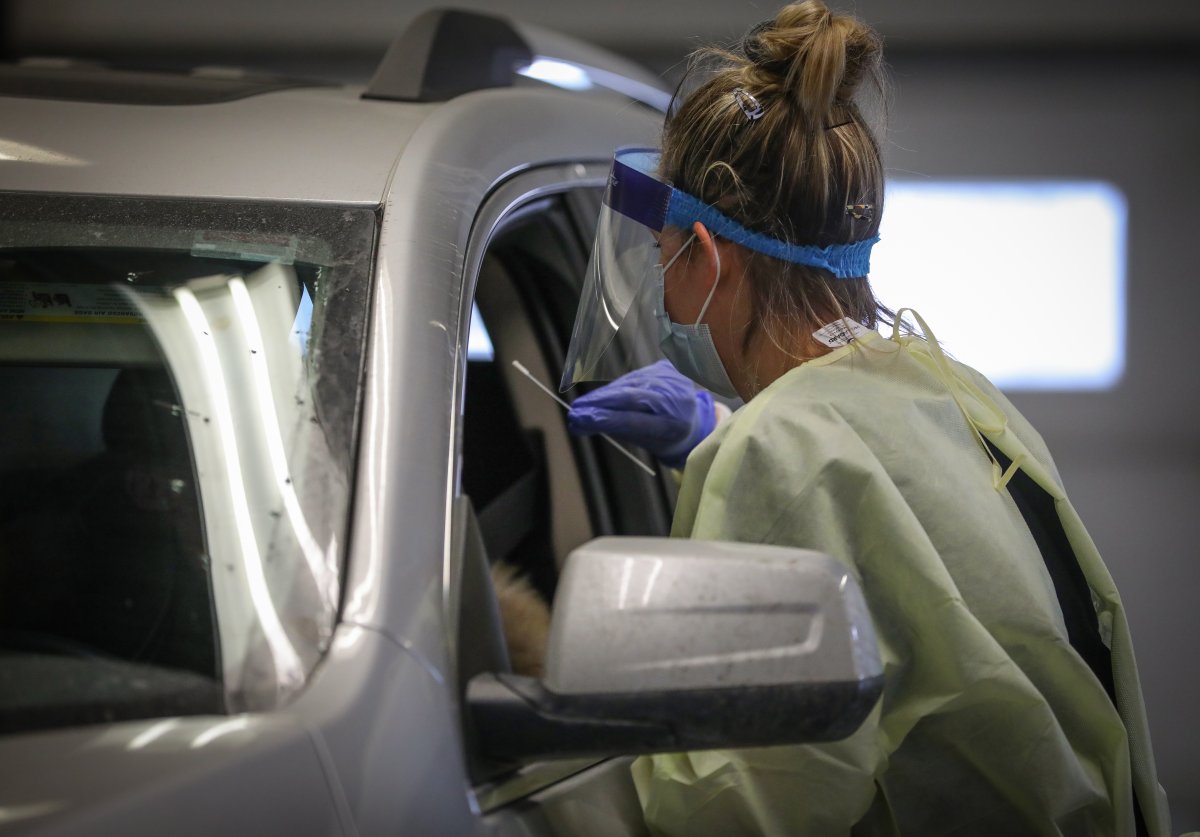Regina and Saskatoon’s hours for drive-thru COVID-19 testing are changing in the first week of 2021, according to the Saskatchewan Health Authority (SHA).

Expanded hours will begin when appropriate staffing is able to be mobilized, according to a press release.
Regina’s drive-thru testing site, located at Evraz Place, will be open from 11:30 a.m. to 7 p.m. all week starting on Jan. 2, 2021.
In Saskatoon, the site at 3630 Thatcher Ave. will change on Jan. 4, 2021, to the following:
- 12 p.m. to 7 p.m. from Monday to Friday; and
- 8:30 a.m. – 4 p.m. on weekends.
A referral is not required for a drive-thru test but people need a valid Health Card or piece of government-issued identification.
Drive-thru testing sites are first-come, first-serve basis and waits should be expected depending on the demand for services.
“Currently, peak times are typically when the site location opens. You can consider arriving at the location later in the day to try to avoid a significant wait, though you should still be prepared for a delay,” SHA said in a statement.
The hours for drive-thru testing locations in Prince Albert and Yorkton will stay the same.
According to the provincial government, 3,497 COVID-19 tests were performed on Thursday in Saskatchewan. To date, 379,378 tests have been carried out in the province.
Health officials said there were 246 new cases in the daily update on Friday, with the overall case count for the province growing to 11,475 since the first case was reported in March. The new seven-day average of daily cases is 282.

Questions about COVID-19? Here are some things you need to know:
Symptoms can include fever, cough and difficulty breathing — very similar to a cold or flu. Some people can develop a more severe illness. People most at risk of this include older adults and people with severe chronic medical conditions like heart, lung or kidney disease. If you develop symptoms, contact public health authorities.
To prevent the virus from spreading, experts recommend frequent handwashing and coughing into your sleeve. They also recommend minimizing contact with others, staying home as much as possible and maintaining a distance of two metres from other people if you go out. In situations where you can’t keep a safe distance from others, public health officials recommend the use of a non-medical face mask or covering to prevent spreading the respiratory droplets that can carry the virus. In some provinces and municipalities across the country, masks or face coverings are now mandatory in indoor public spaces.
For full COVID-19 coverage from Global News, click here.



Comments